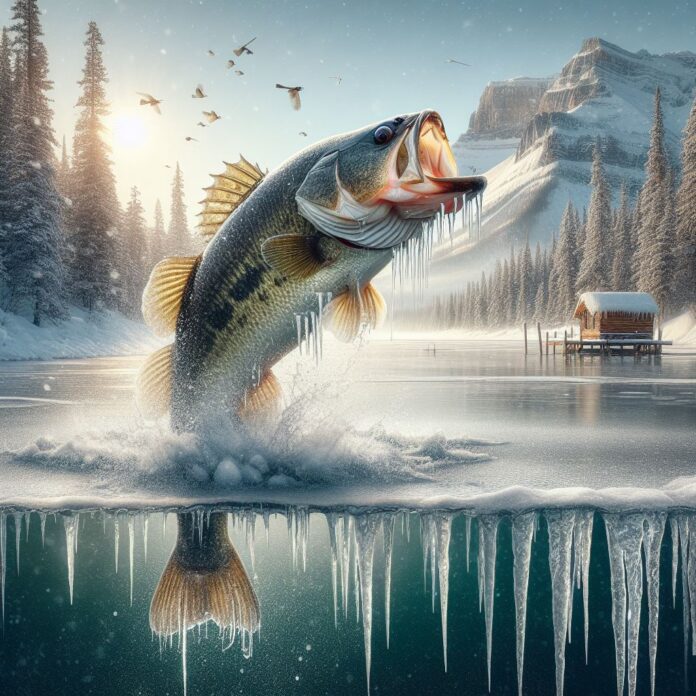As another year approaches its end, a widespread change unfolds in every corner of the natural world. The deciduous leaves ? wear their annual red and golden apparel, while animals, big and small start preparing for the season of scarcity. Our finned friends, the bass fish ?, are no exception to this rule as winter ?, for them, is an entirely different ballgame.
It’s a surprising fact for many, but winter doesn’t necessarily start for bass when it does for us. For the submerged creatures, winter effectively begins when the water temperature dips below 50 degrees Fahrenheit ?. Bass are cold-blooded creatures. Like other reptiles and amphibians, their body temperature fluctuates with the immediate environment. The wintry water doesn’t just take a toll on the fish’s temperature. It also brings about drastic changes in their metabolic activities, thus signaling the onset of the hard times.
So, what happens when the water temperature starts to plunge in the late autumn? ? For bass fish, life begins to slow down. At 50 degrees Fahrenheit, these fish start to feel the chill. They adjust by becoming less active and their metabolism follows suit. The once vibrant and agile hunter gradually loses speed and its voracious appetite due to the slowdown in its physiology.
During summer, ? a bass fish typically requires to feed once every two to three days. However, as the bass move into winter dormancy, their feeding frequency reduces drastically to cater to their sluggish metabolism. They might only need to feed once every few weeks during the harshness of winter. While this might seem a disadvantage, it is, in fact, an adaptation that enables survival in resource-scarce conditions.
The effects of cold water temperatures do not stop at the diminution of their metabolic processes and behavioral changes; it goes beyond. Recreational anglers ? often note that the bass fish become difficult to catch as the water temperature goes down. This isn’t because the fish has developed an aversion to the lure. Instead, it’s due to something much more interesting; their sensory systems tone down.
Bass rely mainly on their vision ? and lateral line system – a row of hair-like structures that extend along their body and detect vibrations in the water – to hunt their prey. However, the chilly water suppresses these sensory faculties, which explains their lack of interest in the bait and responds to artificial lures.
These changes often prompt bass fish to migrate ? to warmer waters. They retreat from shallows to deeper zones where temperatures are more stable. This seasonal migration is another feature that defines the winter for bass.
Moreover, during this season, there is also a shift in the daily activity patterns of bass, known as diel behaviors. With shorter days and longer nights, bass become more active during the daylight hours, soaking up the slightly warmer temperatures of the mid-day winter sun ☀️.
Interestingly, not all species of bass have the same winter behavior. For instance, largemouth bass tend to become more dormant in cold waters, while the smallmouth bass are known for their activity even in colder conditions.
So, it wouldn’t be wrong to say that ‘bass winter’ is not simply a time defined by a calendar ?. It’s a time of complex behavioral, physiological, and environmental changes. Amid the brutal conditions, these incredible creatures present an impressive display of survival and endurance.
While winter presents arduous conditions for bass, it also offers a fascinating slice of aquatic life. And understanding these winter behaviors of bass can enhance not only our appreciation of these resilient creatures, but also our success catching them.
Whether you’re an avid angler or just a nature enthusiast, there’s much to learn and love about the enchanting world of bass, especially during the winter months. So, the next time you see a snowflake ❄️, remember, it’s not just our world that’s changing, but the underwater world of the bass is transitioning too. Happy ‘bass’ winter! ? ⛄.

